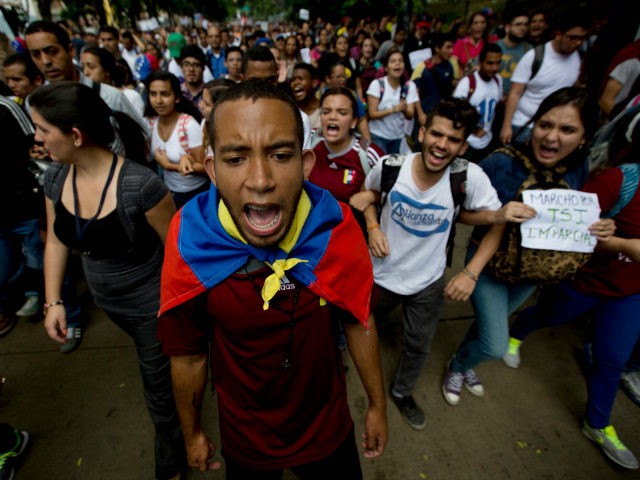An armed gang stormed the homes of eleven men and boys in northwest Venezuela on Saturday, shooting them dead in their yards. The massacre, involving three minors and a Colombian national, has brought to light once again the Venezuelan government’s seeming inability to deter the violent crime that has made it the world’s most violent country not currently at war.
The incident occurred in Trujillo state, and police have uncovered few details about the mass shooting. Law enforcement issued a statement with all the details at their disposal: “at 2 AM on the day in question, the victims were in their homes when they were surprised by various armed men, who forced them out into their yards and shot them until they were dead.”
There is no known evidence that the shooters stole anything from the homes of the victims. All victims were male, ages ranging from 15 to 76. Police have not provided any details regarding the connections among the victims — whether they were relatives, friends, or believed to be involved in criminal activity together. Police have not publicly stated a motive.
BBC reports that their sources have confirmed that two of the men in question had criminal records and that police suspect — though they are not ready to say so publicly — that the shooting was a revenge act related to some criminal activity.
The incident is the latest to highlight the rampant violence, of both the criminal and political varieties, that has consumed Venezuela. After years at second place in the rankings under President Nicolás Maduro, Caracas is now the world’s most violent city (excluding those considered to be at war), with police reporting nearly 120 homicides per 100,000 residents in 2015.
Outside of Caracas, areas like western Táchira, which has become a hotbed of anti-socialist activity, are home to some of the most gruesome homicides in the nation. Venezuela’s prisons are teeming with criminals who appear free to participate in the activity that landed them there. In one island prison, inmates felt so confident in their freedom as to record a “tribute video” to a deceased gang leader, showcasing an alarmingly wide arsenal of weapons, which they freely shot into the air to celebrate their fallen leader in January.
Venezuelans who support the anti-socialist opposition expect little from the Maduro government. Many believe the widespread rumors, which have led to a U.S. investigation, that Maduro’s longtime second-in-command is the head of one of Latin America’s most prominent cocaine smuggling rings and has ties to international terror organizations like Hezbollah.
Even if the government were to be found not openly engaging in criminal activity, its responses to petty crimes appear weak. Maduro has focused much of his police force on quelling dissident voices, instead, such as 14-year-old Kluiverth Roa of Táchira state, who police gunned down and killed after he yelled “stop the repression” on a public street during daytime. The boy was found not to have been participating in any protests going on that day, merely passing them on his way back from school. Police also regularly use tear gas and water cannons to subdue peaceful protesters or attack opposition leaders, including elected public officials.
Other than using the Bolivarian National Guard to attack protesters, Maduro has forced his armed forces to prepare for an alleged attack from the United States. He has accused Vice President Joe Biden personally of conspiring to topple his regime, while accusing President Barack Obama of plotting airstrikes on Caracas, both accusations for which he has not presented evidence.

COMMENTS
Please let us know if you're having issues with commenting.